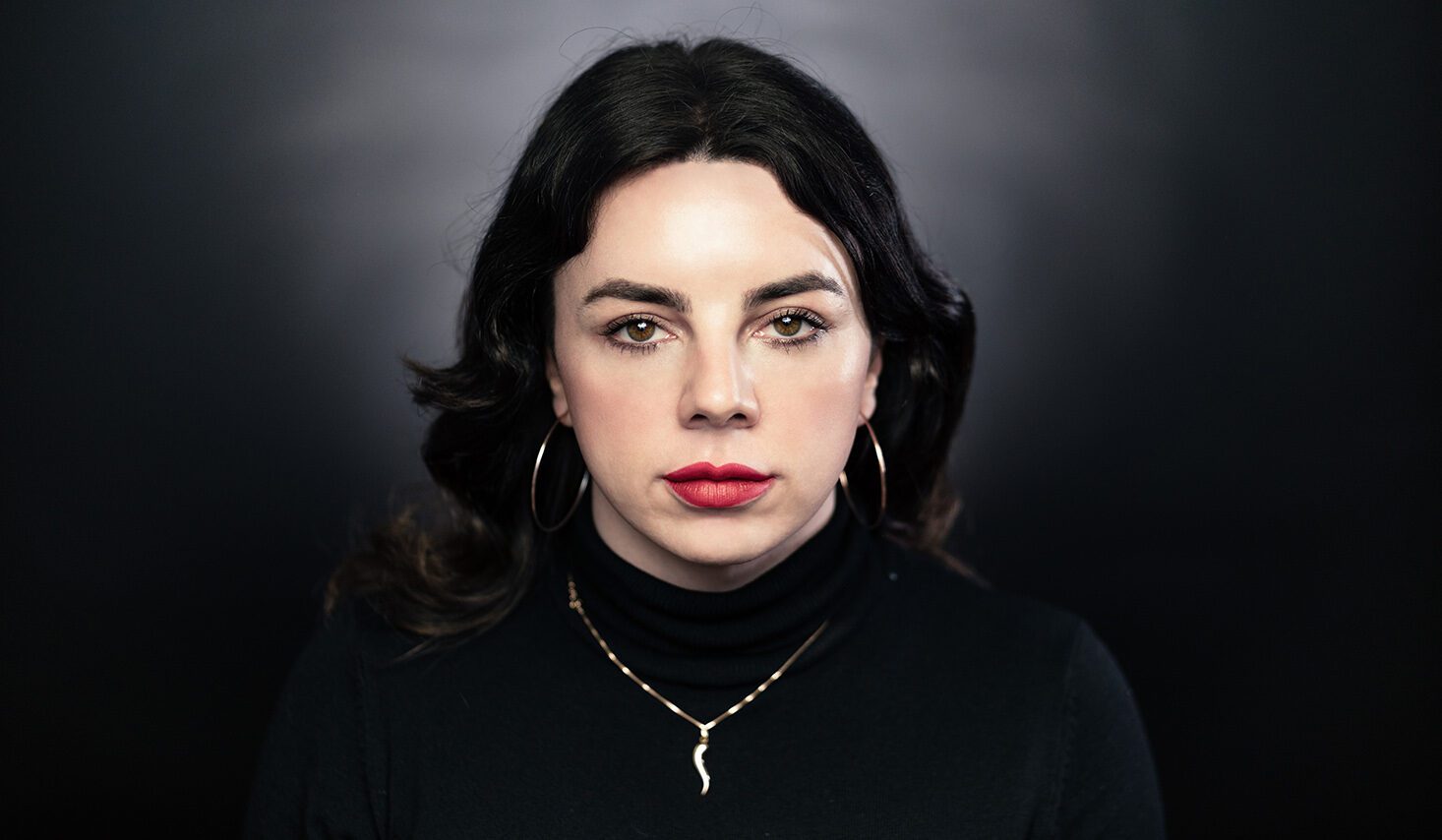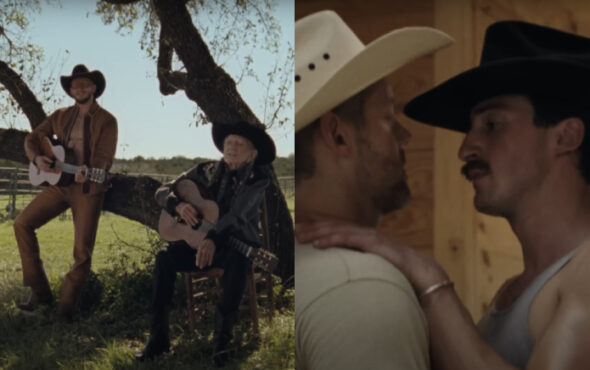
Writer, podcast host and owner of a banging fringe, Shon Faye has expertise and poise beyond her years. As her debut book The Transgender Issue: An Argument For Justice publishes this week, GAY TIMES sat down with the queen of the gays to talk about just what it means for this book to be hitting the shelves during the current climate regarding trans issues in Britain.
Described as ‘monumental’ by Judith Butler, and ‘well good’ by yours truly, Faye’s debut tackles head on the reality of being trans in the UK. It’s hard-hitting and leaves no corner unturned, detailing the experiences of trans sex workers, the prison system, housing and healthcare, and the feminist communities within Britain and beyond. Both personal and sharp, it truly is an argument for justice for trans people everywhere.
As a writer, how does it feel to be able to see your own book published?
Being an online Millennial writer where you’re used to writing a piece, it probably going online, occasionally in print but mostly online these days, and then maybe post it on Twitter and you get the instant kind of reaction and the gratification and the dopamine, that’s kind of what I was born and raised on as a writer. With a book it’s hard because it’s such a longer process. It’s two to two-and-a-half-years of my life, so much of it when you’re actually writing it’s just you and the material on your own and not really having a clue if it’s good … you become a bit numb to it, and it just feels like something that’s been with you for so long. It’s like trying to work out whether your husband of 40 years is still attractive or not.
You touched upon it in the acknowledgements about how your agent convinced you to do this book. Was it tough to get to a mental place where you felt ready to write this book because you have eyes and a Twitter account, so unfortunately you can predict what the reaction to this book will be?
There was a need for some kind of intervention of sorts into the public discourse and mainstream media, and realising that I was fortunate enough to have the kind of platform to be able to do that. There’s also the cliché that people say about, ‘You should write the book that you wish existed’. There was an element of that.
I’m never going to be ready for the hostility that it will attract and I’m starting to taste it now as publication nears, and it will last for the next few weeks. I can’t say that I have the emotional capacity, I can just manage it as best I can. I try to put things in place for resilience. But ultimately, I have to try and remember that negativity and hate can stick in your mind.
How do you feel about the narrative of being trans and being a writer, or being trans and being in the media and the pressure often to become a ‘trans writer’ and focus your work on just trans issues? Do you feel like that’s a healthy way for the industry to work?
I write about lots of other things and always have. My work for Dazed is a lot about pop culture and other kinds of politics. I really used to write stuff about mental health politics. There are other things that I used to speak about and obviously zeroing in on this aspect is because … yeah! Because you’re a trans writer. Obviously there’s a desire as you to kind of rise above your transness, and be recognised just as a writer, and I am aware that this book is probably not the moment that will happen.
Unfortunately, the way that the media works is that you’re made an authority on the subject to which you’ve written. But ultimately, I guess on a selfish level I’m worn down and frustrated by how this barrage of bullshit in the media, it’s just not going away, and so, I guess I’m at a point where I would rather just put something out into the world. Even if it doesn’t make any impact, you need to feel like you have some kind of power and agency to do something to challenge the injustice being done to trans people right now by our media.
You’ve always struck me as someone with a fairly Laisez Faire attitude when it comes to ‘trans discourse’. You bring yourself in on the joke, do you think that’s a way for you to cope with being a trans woman?
Being trans is really funny. The experiences we have are very, very surreal. Obviously there are times where you can wake up in the morning and be like, ‘Well, you really did – at some point in 2015 – start taking oestrogen and you just grew tits!’ What a mental thing to have done? It is very surreal.
It simultaneously sort of makes my life easier, but also has made it a lot harder in many ways. There is an element which I make fun of because it’s something worth making fun of. It definitely helps me cope. But I can do this [find it funny] because I had a pretty smooth transition in many ways, and didn’t lose as much as some people do. I didn’t lose family and I didn’t lose friends and I didn’t lose housing. So in many ways, it’s easier for me to be funny because it hasn’t cost me anything.
And so I wouldn’t be saying everyone has to find it really fucking hilarious … but I guess it is to lighten the load a little bit. It’s a bit like what Lady Gaga said: ‘People take me both way too seriously and not seriously enough’.
Judith Butler described the book as ‘convincing’. How does that word ‘convincing’ land with you?
I keep thinking of it being used in the context of Grindr … Thanks! In fairness to Butler they were saying that the argument is convincing and I don’t mind that because they’re talking about the specific text that I have written. I am writing an argument that is intended to persuade. Now, if you’re talking politically, it’s annoying that an argument has to be made, but I’m kind of resigned to the fact that it does.
It’s about context because, for example, I don’t like it at parties or social situations, getting into discussions or debates about anything to do with being trans in that kind of non-professional context. It’s not my job to want to have a discussion with a stranger or an acquaintance about something. I’m not on the clock, you know. I now can obviously be like, ‘Read my book!’ But before it’s just been, ‘No, I don’t owe you this explanation.’ I don’t owe you a discussion on this and I can be quite quite abrupt about that.
Was it an active decision to include a minimal amount of personal stories, such as the situation with Amnesty International three years ago?
That time was very, very stressful and painful. I stopped sharing personal stuff on Twitter after that and realising this is a hostile space for me now in a very particular targeted way – and it’s hostile for all trans people. But I basically had a deranged online cult who would stalk me.
As a reader I think it’s incredibly clever to take us through the book as a narrator simply sharing the information, and then towards the end in that Feminism chapter being like ‘Ta Da! Hello! This actually happened to me too!”
Yeah, you know it’s not just about this whole toxicity around the feminism question and trans people. It isn’t just about this abstract debate about sex and gender and women’s spaces. It’s about really nasty vicious abuse, calling me a pervert. Basically, implying I’m predatory towards children. I wanted to explain and also then refer back to history and point out that I’m not the only one. This is a pattern of abuse towards trans women within feminism that’s gone on for 40-50 years.
Shon Faye’s The Transgender Issue: An Argument For Justice is out now.


